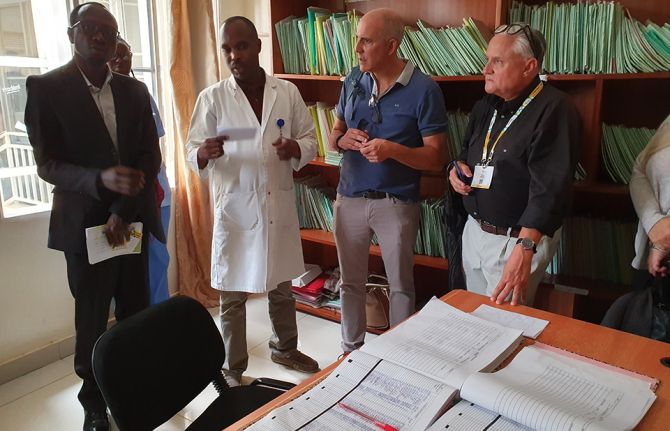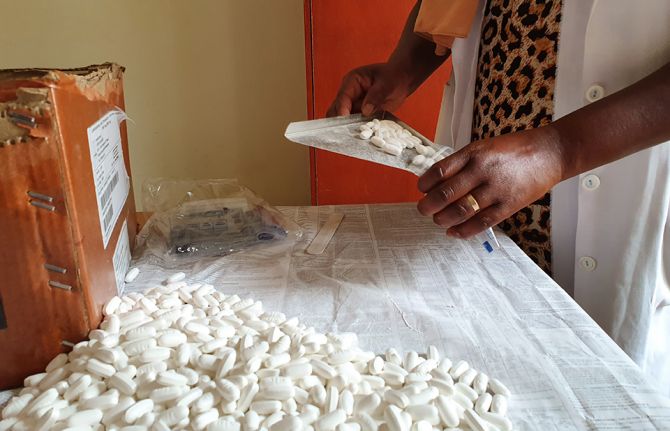


Feature Story
Desert AIDS Project delegation visits health-care centre on the sidelines of ICASA
05 December 2019
05 December 2019 05 December 2019Stepping into the Remera Health Centre in Kigali, the Desert AIDS Project (DAP) delegation visited one of the 552 integrated health centres in Rwanda. The clinic offers everything from primary care to clinical care for all ages, as well as HIV services.
The head of the centre, Emile Musabyimana, led the group around the facility, which includes a laboratory where HIV, viral load and tuberculosis testing are carried out. He is particularly proud that Remera has adopted the test and treat approach, which means that anyone who tests positive for HIV is immediately offered treatment.
The Remera Health Centre serves about 3000 people living with HIV, of which 2400 are virally suppressed. The clinic monitors patients on a monthly basis until their viral loads drop to undetectable levels.
Established by a group of volunteers in 1984, the DAP provides HIV prevention, treatment and care services to people living with and affected by HIV across the Palm Springs, California, area. It has expanded its primary care facility to include a dental clinic and affordable housing.
The delegation, in Kigali for the International Conference on AIDS and STIs in Africa (ICASA), discussed some of the challenges the Remera centre faces. Mr Musabyimana explained that too few young people come to the clinic.
“We need to address the issues of why they don’t come and get tested,” he said. “And when they do know their HIV-positive status, they don’t always stay on treatment.”
As a result, the centre organized an informal chat with young people living with HIV with the delegation.
“A lot of these kids were born with HIV and a lot of them are stigmatized and so they’re fighting it and fighting through it,” said Patrick Jordan, DAP Vice-Chair. He added, “To see them in their valiant efforts and how strong they are is inspiring.”
David Brinkman, DAP Chief Executive Officer, couldn’t agree more. He applauded the health centre’s work as well as Rwanda’s low HIV prevalence rate compared to neighbouring countries in the region.
“We really have to acknowledge what Rwanda is doing,” he said. “People on the ground have all the knowledge they need, it’s now about resources so that when we combine knowledge and resources, we will end the epidemic by 2030.”
Over the past year, a partnership between DAP and UNAIDS has been growing, with the idea of joining forces to support grass-roots and community-led HIV efforts worldwide.



